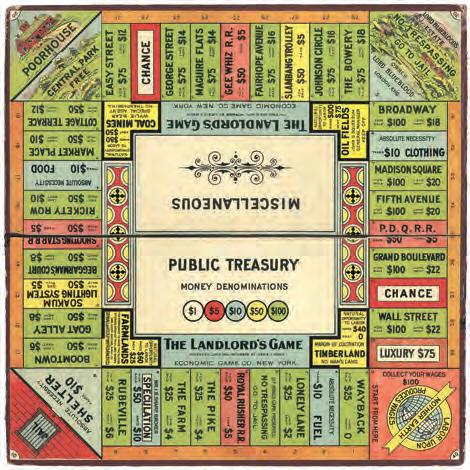
1 minute read
Ruthless: Monopoly’s Secret History on American Experience
Monday, Feb. 20 at 10 p.m. on WETA PBS; stream on the PBS App
For generations, Monopoly has been America’s favorite board game, a love letter to unbridled capitalism and — for better or worse — the impulses that make a free-market society tick. But behind the myth of the game’s creation is an untold tale of theft, obsession and corporate double-dealing. Part detective story, part sharp social commentary and part pop-culture celebration, Ruthless: Monopoly’s Secret History, from writer-director Stephen Ives (who partnered with WETA on the productions The West and Reporting America at War), presents the true story of the game and those who created it.
Contrary to the folksy legend spread by Parker Brothers, Monopoly’s secret history is a surprising saga that features a radical feminist, a community of Quakers in Atlantic City, America’s greatest game company, an unemployed Depression-era engineer, and a determined economics professor. According to the official story, amateur inventor Charles Darrow created the best-selling game. But that is not true. The film spotlights how the game’s true origins came to light when an impassioned anti-monopolist provoked the ire of the game’s corporate owners, kicking off a 1970s legal battle that went all the way to the Supreme Court. The film credits Lizzie Magie as the game’s creator: she developed The Landlord’s Game in 1903 to illustrate the evils of landlords and monopolistic practices. The story of how it came to be appropriated and patented, and its origins kept secret as millions in profits were reaped, is fascinating.




